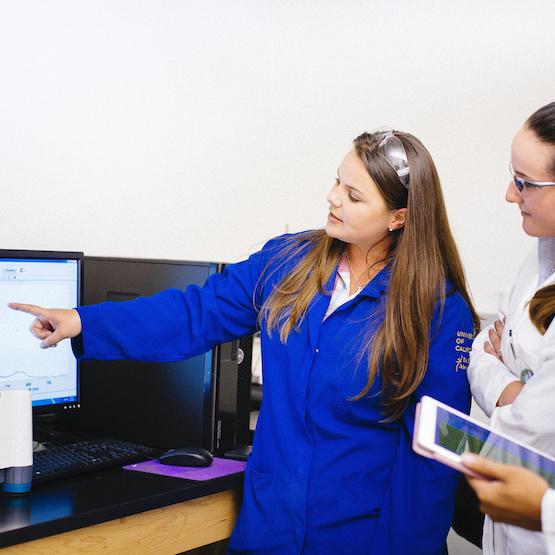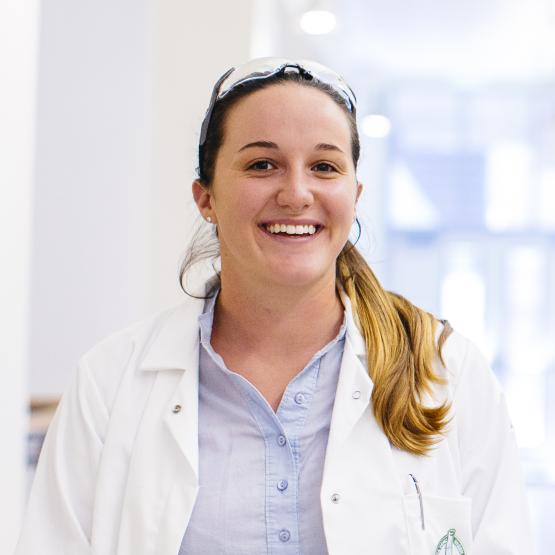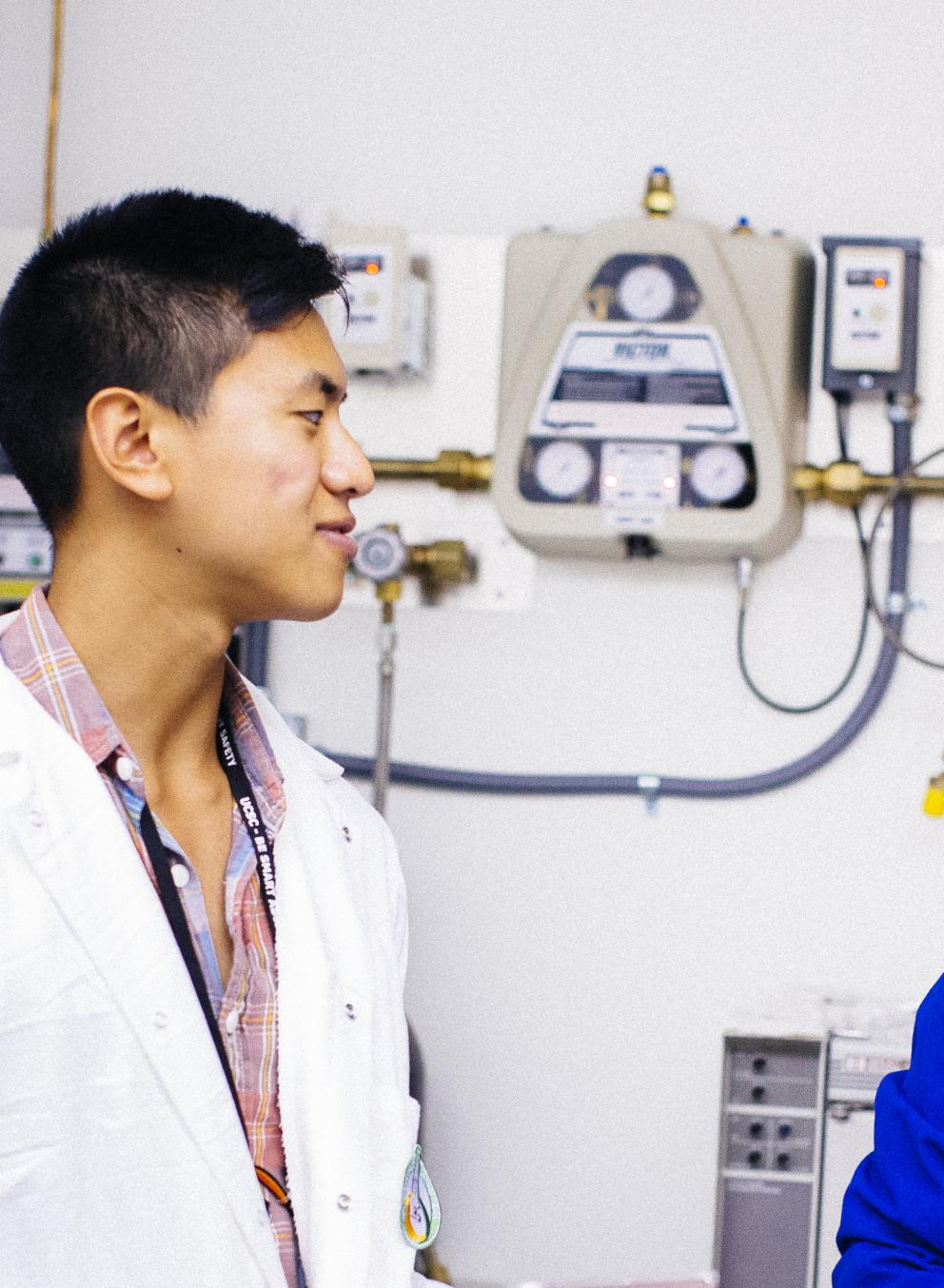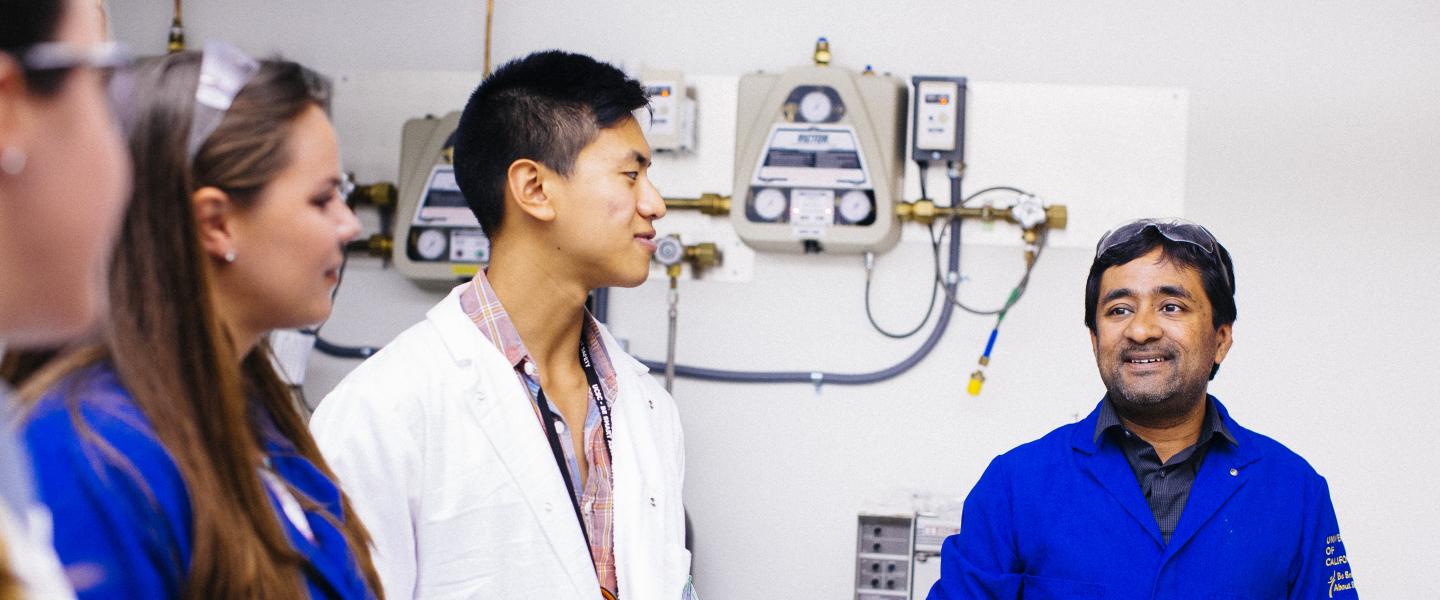- Science & Math
- B.S.
- Physical and Biological Sciences
- Molecular, Cell, and Developmental Biology
Program Overview
The neuroscience major provides students with rigorous preparation for graduate studies and research. The brain and determinants of behavior are studied at all levels, from biological molecules to individual nerve cells to functioning organisms to social behavior.
Learning Experience
Study and Research Opportunities
- As part of the core upper-division neuroscience courses, students will complete at least 1 Advanced Topic neuroscience course.
- Access to courses in related fields, such as Psychology and Cognitive Science
- Hands-on laboratory courses and opportunities for independent research
Study and Research Opportunities
First-Year (Freshman) Requirements
In addition to the courses required for UC admission, high school students who intend to major in biology should take high school courses in biology, chemistry, advanced mathematics (precalculus and/or calculus), and physics.
The MCD Biology department has a qualification policy that applies to the molecular, cell and developmental biology B.S.; Global and Community Health, B.S.; biology B.S. and neuroscience B.S. majors. For more information about these and other MCDB majors, see the MCD Biology Undergraduate Program website and the UCSC Catalog.

Transfer Requirements
This is a screening major. Junior transfer students who plan to major in the biological sciences must complete the qualification requirements prior to transfer.
Junior-level transfer students are also strongly encouraged to complete a year of organic chemistry, calculus and calculus-based physics courses prior to transfer. This will prepare transfer to begin their advanced degree requirements and allow time in their senior year for doing research. California community college students should follow the prescribed coursework in the UCSC transfer agreements available at www.assist.org.
Prospective transfer students should review the transfer information and qualification requirements on the MCD Biology Transfer Student website and the UCSC Catalog.

Internships and Career Opportunities
- Biochemistry
- Biomedical research
- Cell biology
- Child development
- Government research
- Medical technology
- Medicine
- Mental health
- Optometry
- Physiology
- Psychology/Psychotherapy
- Teaching
These are only samples of the field’s many possibilities.

